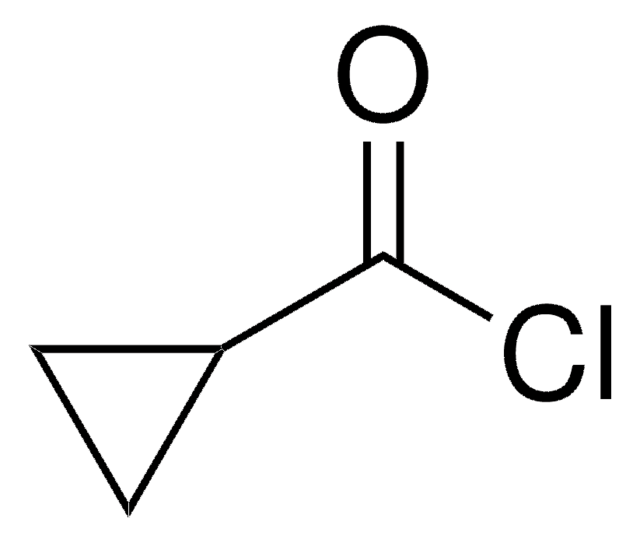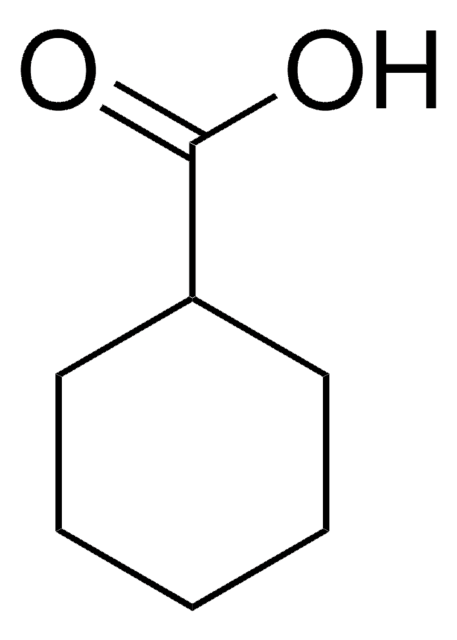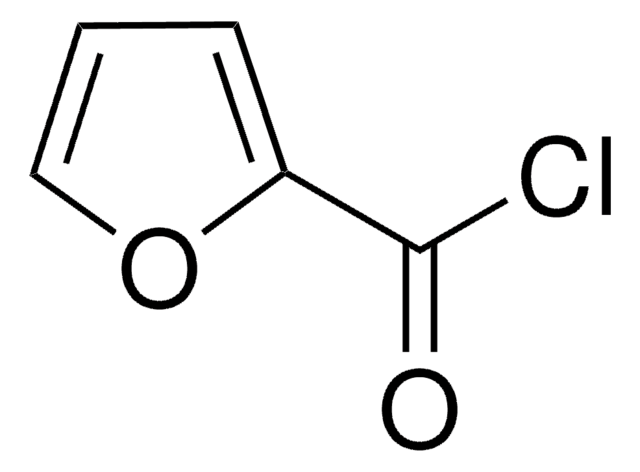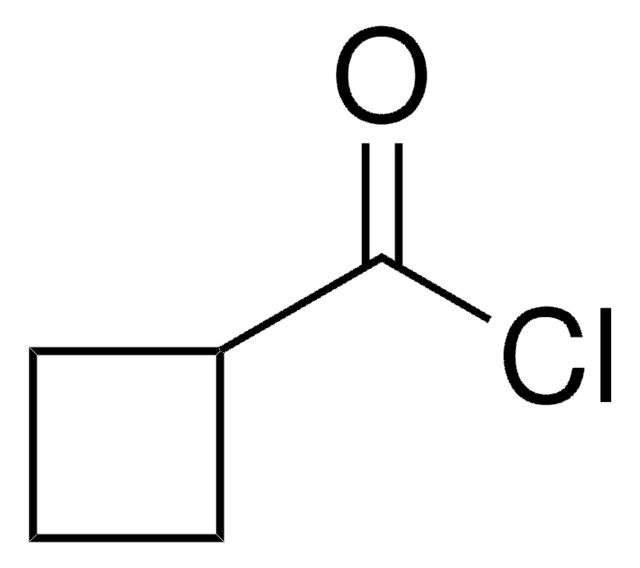C116602
Cyclopropanecarboxylic acid
95%
Synonyme(s) :
CPC-acid
About This Item
Produits recommandés
Niveau de qualité
Pureté
95%
Forme
liquid
Indice de réfraction
n20/D 1.438 (lit.)
Point d'ébullition
182-184 °C (lit.)
Pf
14-17 °C (lit.)
Densité
1.081 g/mL at 25 °C (lit.)
Température de stockage
2-8°C
Chaîne SMILES
OC(=O)C1CC1
InChI
1S/C4H6O2/c5-4(6)3-1-2-3/h3H,1-2H2,(H,5,6)
Clé InChI
YMGUBTXCNDTFJI-UHFFFAOYSA-N
Vous recherchez des produits similaires ? Visite Guide de comparaison des produits
Catégories apparentées
Mention d'avertissement
Danger
Mentions de danger
Classification des risques
Skin Corr. 1B
Code de la classe de stockage
8A - Combustible corrosive hazardous materials
Classe de danger pour l'eau (WGK)
WGK 3
Point d'éclair (°F)
161.6 °F - closed cup
Point d'éclair (°C)
72 °C - closed cup
Équipement de protection individuelle
Faceshields, Gloves, Goggles, type ABEK (EN14387) respirator filter
Certificats d'analyse (COA)
Recherchez un Certificats d'analyse (COA) en saisissant le numéro de lot du produit. Les numéros de lot figurent sur l'étiquette du produit après les mots "Lot" ou "Batch".
Déjà en possession de ce produit ?
Retrouvez la documentation relative aux produits que vous avez récemment achetés dans la Bibliothèque de documents.
Les clients ont également consulté
Notre équipe de scientifiques dispose d'une expérience dans tous les secteurs de la recherche, notamment en sciences de la vie, science des matériaux, synthèse chimique, chromatographie, analyse et dans de nombreux autres domaines..
Contacter notre Service technique













